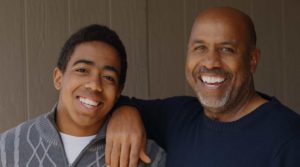
Attention Deficit Disorder in Youth
Recent estimates based on surveys from the Centers for Disease Control and Prevention (CDC) are that over 5.1 million children ages 4-17 are currently living with an attention deficit hyperactivity disorder (ADHD) diagnosis. This comes out to roughly 8.8% of the total population in this age range! For teens, the percentage estimates are even higher—roughly 11.4% of children ages 11-14 and 10.2% of children ages 15-17 are living with this diagnosis. Although these numbers may be startling, if you are a parent that suspects or knows that your child is struggling with this disorder, be encouraged that you are not alone and that there are many ways to combat attention deficit disorder—both medically and in your home.
Attention Deficit Disorder Symptoms
If your child has not been officially diagnosed with ADHD, but you suspect they may be struggling with some form of it, there are three areas of symptoms to look for.
Inability to concentrate
- Easily distracted
- Consistent procrastination
- Overall messy and careless in everyday tasks
- Constant forgetfulness of daily tasks
Abnormally hyperactive
- Restlessness
- Inability to take part in prolonged focused activities
- Thinks more clearly when moving
- The consistent sense of anxiety or nervousness
Impulsive behavior
- Says whatever comes to mind, even if inappropriate for the situation
- Impatient, low tolerance for frustrating situations
- Impulsive lying or stealing
- Trouble following directions or proper procedures
- Frequent job, activity, or interest changes
Types
There are several different types of ADHD, which are diagnosed based on the symptoms a child presents. The three most widely known types are:
- Classic/Combined ADHD: This is the easiest to spot. Children with this type of ADHD show normal brain activity during times of rest and decreased activity during concentration tasks. Symptoms usually include several from each of the three categories listed above.
- Inattentive ADHD: This type usually only include symptoms that fall under the “inability to pay attention or concentrate” category. For children with inattentive ADHD, hyperactivity and impulsivity may not be a problem.
- Hyperactive-Impulsive ADHD: Conversely, in this type of ADHD children may exhibit signs of hyperactivity an impulsive behavior but have no problem focusing or concentrating.
Medication: Helpful or Harmful?
 If your child is truly struggling with ADHD, rather than just going through an unmotivated or abnormally active phase, medication can be helpful for their ability to focus and/or for helping them control their behavior. However, giving your child medication also comes with its own set of risks, so it is highly recommended to have your teen evaluated by a mental health professional before making this decision. Keep in mind that for a child truly struggling with ADHD, they may be confused as to why they are constantly getting into trouble, both at home and at school. This confusion can have a negative impact on their self-perception.
If your child is truly struggling with ADHD, rather than just going through an unmotivated or abnormally active phase, medication can be helpful for their ability to focus and/or for helping them control their behavior. However, giving your child medication also comes with its own set of risks, so it is highly recommended to have your teen evaluated by a mental health professional before making this decision. Keep in mind that for a child truly struggling with ADHD, they may be confused as to why they are constantly getting into trouble, both at home and at school. This confusion can have a negative impact on their self-perception.
Though most kids with ADHD are actually very intelligent, because of their struggle with grades and behavior due to inattentiveness, they may view themselves as unintelligent and a “bad kid.” If you think medication could help them achieve their full potential and rectify this false self-perception, then it should be considered.
Be prepared that there will be a process of trial and error as you and your doctor work to find the right medication or combination of medications that will help your child. If possible, try to begin this process during a break such as a summer or a winter vacation. Your teen may react negatively to certain medications or doses of medication, such as showing increases in aggression or struggling to stay awake. Report any negative side effects to your psychiatrist or doctor immediately, and also keep your child’s teacher informed. Teachers are usually much more understanding and effective if they know the medication additions or changes could be influencing your child’s behavior.
Parenting Strategies
 Some helpful parenting strategies for parents of children struggling with ADHD include:
Some helpful parenting strategies for parents of children struggling with ADHD include:
- Establishing structure and routines: Children and teens with ADHD operate much better within the confines of structure and routine, helping them prioritize their time and acknowledge deadlines for work that needs to be done.
- Provide extra praise and encouragement: As mentioned earlier, teens with ADHD often struggle with negative self-perception and low self-esteem. Help combat this by telling them whenever they do something well!
- Pick your battles: Some behaviors may be annoying, but not detrimental to the healthy development of your child. Choose to ignore behaviors that do not present a serious problem and focus on helping them through a few areas at a time.
- Speak simply and clearly when giving directions: Tell your child exactly what you are asking them to do, and when you would like it to be done by. Avoid giving multi-step instructions.
- Communicate early and often with your child’s teacher: Teachers can be a valuable resource both in telling you about your child’s behavior at school and being a part of your treatment strategy. Let them in on methods that are working for you at home and ask them to watch for any improvement at school.
We hope that this content has been informative and helpful. It is our desire to help families and bring struggling teens back together. We encourage you to share this information with others who may be in need.
Our ministry is primarily funded by our supporters, both individuals and churches, who partner with us to bring about restoration in these young men's lives. To join them in supporting Rock Solid Refuge and our ongoing ministry, please click here to donate!
Thank you for your support.
